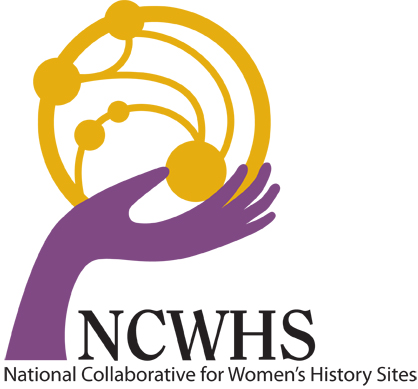There have always been great women artists—a fact that feminist art historians have continually and consistently reinforced over the past half century. Using this summer’s new “Women’s Work” exhibition at Lyndhurst as a source of inspiration, these virtual events will delve into the complex history of women’s artistry; the growing recognition of the influence of women artists, feminist artists, and women artists of color on the art world; and the deep connections that exist between the production of art and the places where women created it.

These virtual events are brought to you by the National Trust for Historic Preservation’s Where Women Made History program in conjunction with the “Women’s Work” exhibition at Lyndhurst—a National Trust Historic Site.
Register Today
Women’s Work: Beatrice Glow, Daisy Quezada Ureña, and Nafis M. White in Conversation with Rebecca Hart (September 7 at 1:00 p.m. ET)
Independent curator Rebecca Hart leads a panel discussion with three incredible artists who are featured in Lyndhurst’s “Women’s Work” exhibition. Beatrice Glow, Daisy Quezada Ureña, and Nafis M. White each use their artistic vision to address complex social and political issues that include migration, colonialization, gender and racial discrimination, and cultural identity.
Using a wide range of different media and sensory experiences, each artist explores identity, community, and the power of resilience in their vast body of work, community activism, and teaching. Rebecca Hart will engage these artists in conversation about their chosen methodologies and the ways in which they examine their role as artists within the historical context of artistic practice.
Women’s Work: A Conversation with Lucy Lippard and Harmony Hammond (September 20 at 1:00 p.m. ET)
Writer, activist, curator, co-founded various artists’ feminist and activist organizations and publications, and author of 25 books on contemporary art and cultural criticism, Lucy Lippard, will be joined by Harmony Hammond, a leading figure in the development of the feminist art movement in New York in the early 1970s, and co-founder of A.I.R., the first women’s cooperative art gallery in New York. You won’t want to miss this spirited and thought-provoking conversation between two leading figures of the feminist art movement—and two long-time friends—as they reflect on their careers from the 1970s up to the present, and the evolution of “women’s work” in the art world as reflected in the artists and artwork of the Women’s Work exhibition at Lyndhurst.
